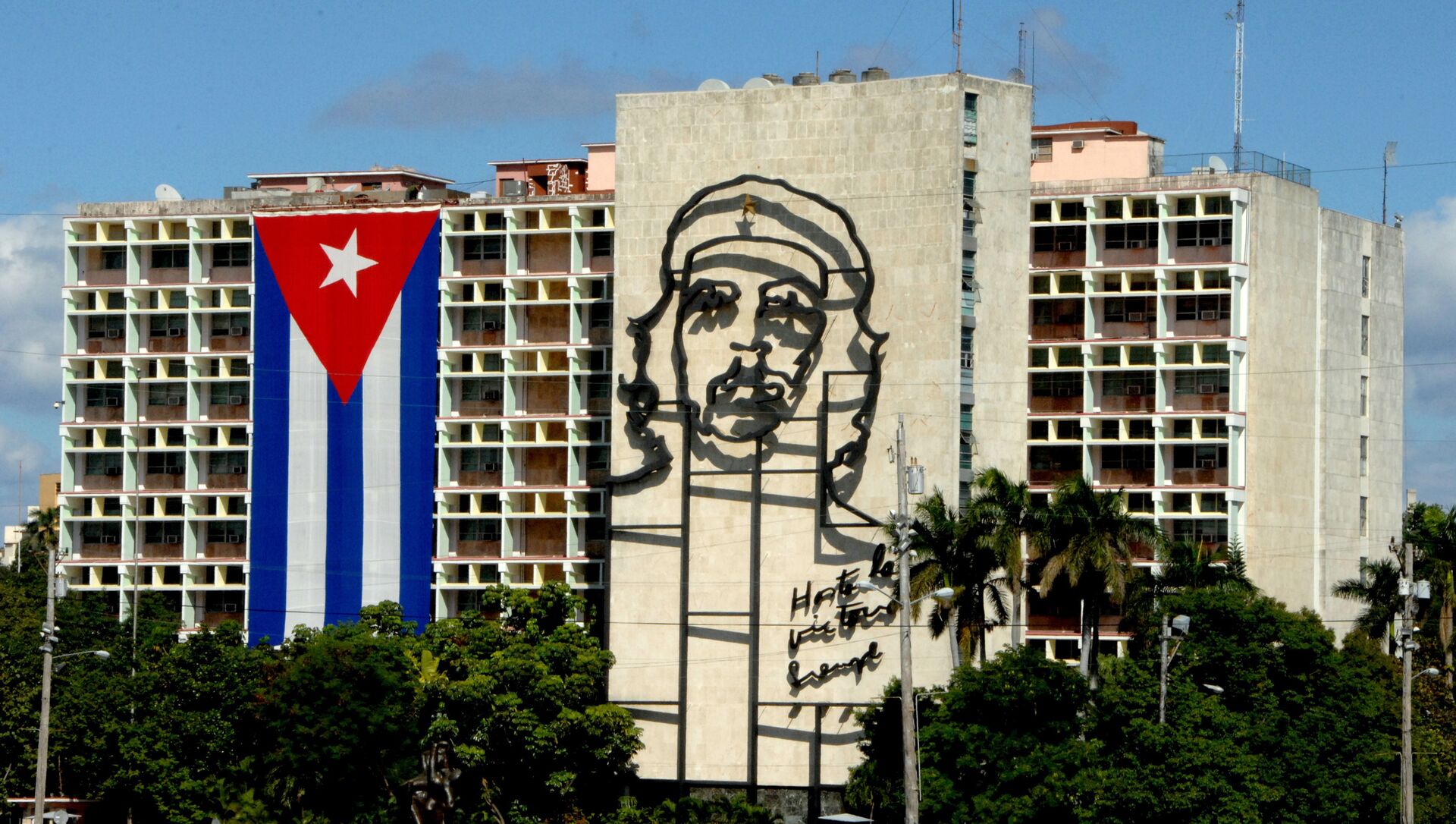US Treasury Announces New Sanctions on Cuban Police Force in Wake of Protests
19:27 GMT 30.07.2021 (Updated: 10:38 GMT 29.03.2023)

© RIA Novosti . Pavel Gerasimov
/ Subscribe
Due to a severe shortage of medical goods on the island caused by US trade-blocking sanctions, solidarity groups in the US have donated millions of syringes to help Cuban doctors administer the country's highly effective self-developed COVID-19 vaccines. Mexico, Russia, and Nicaragua have also shipped hundreds of tons of aid to Cuba.
The US Treasury announced new sanctions under the Global Magnitsky Act on Friday, targeting Cuba's National Revolutionary Police, its director, Oscar Callejas Valcarce, and deputy director, Eddy Sierra Arias. The Office of Foreign Assets Control noted the three new additions to the Specially Designated Nationals list on Friday, the latest in a series of retributions by Washington after protests in Cuba earlier this month it says were put down with a heavy hand.
"The Treasury Department will continue to designate and call out by name those who facilitate the Cuban regime's involvement in serious human rights abuse," OFAC director Andrea Gacki said on Friday. "Today's action serves to further hold accountable those responsible for suppressing the Cuban people's calls for freedom and respect for human rights."
Last week, the US also imposed sanctions on Cuba’s Minister of Revolutionary Armed Forces and on the Interior Ministry’s special brigade, which US President Joe Biden said were "just the beginning" of actions "targeting elements of the Cuban regime responsible for this crackdown."
Protests erupted in several cities in the socialist island nation on July 11, largely motivated by outrage over fuel shortages and a worsening COVID-19 outbreak, which have resulted in intermittent power as electricity is rerouted to area hospitals. Earlier this week, the president of the Cuban Supreme People's Court said the court was reviewing 19 cases involving 59 people in connection with the protests, which were mostly peaceful and not explicitly against the government.
Also on Friday, Biden met with Yotuel Romero, a Spain-based dissident Cuban rapper behind the song "Patria y Vida," which US media has described as a "rallying cry" for the protests, especially those by right-wing Cuban-Americans in Miami, Florida, whose protests have been much more prolonged and militantly anti-socialist than the demonstrations on the island itself have been.
"There will be more [sanctions] unless there is some drastic change in Cuba, which I don't anticipate," Biden told reporters prior to receiving the artists.
According to The Grayzone, behind the popularity of Romero and other musicians and artists associated with the dissident San Isidro Movement "are two traditional CIA fronts: the US Agency for International Development (USAID) and the National Endowment for Democracy (NED)." In turn, the Cuban government has accused the US of fomenting the protests, and Sputnik has reported on the efforts of US-based tech giants like Twitter to amplify the message of the most anti-government protesters.
The US government has also accused the Cuban government of shutting down the internet in order to limit citizens' access to information about the protests. On Friday, a senior Biden administration official told reporters that the US was "in talks with private sector providers about the possibility of providing wireless LTE communications to the Cuban people."
"We are also going to be [talking] about humanitarian support for the Cuban people," the official added. "We see the censorship of information as a violation of human rights and so we’re going to explore every option possible to be able to be able to guarantee access to that information."
The US has blocked the vast majority of trade between Cuba and the rest of the world since the 1959 revolution that threw out US-backed dictator Fulgencio Batista and ushered into power Fidel Castro, who oversaw the socialist transformation of Cuban society and its integration into the Soviet-led Council for Mutual Economic Assistance (Comecon). The USSR became the primary buyer of products from the former Spanish colony and American client state, purchasing sugar cane and other goods at a rate favorable to the Cubans, enabling some economic development and an advanced medical industry to be created.
The demise of the USSR and Eastern Bloc socialist states in the early 1990s created a severe crisis in Cuba called the Special Period, during which time the US increased its sanctions on Cuba in an attempt to force the socialist government from power, creating severe shortages of fuel, machine parts, and medical supplies, among other goods. A brief reprieve came in 2015, when then-US President Barack Obama began the process of normalizing relations with Cuba, but those efforts were reversed just two years later by Obama's successor, Donald Trump, who further tightened the screws after Cuba continued to support the government of Venezuelan President Nicolas Maduro when the US attempted to overthrow him in 2019 using another local proxy, then-lawmaker Juan Guaido.
Since 1992, the United Nations has voted overwhelming to denounce the blockade; the most recent vote last month saw 184 nations vote against the blockade and just two nations - the US and Israel - vote for it.

